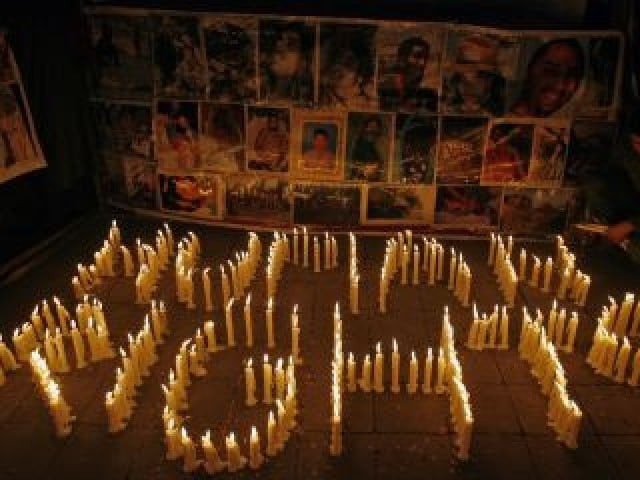Pakistan appeased militant groups, ignored army abuses in 2011: HRW
New report says target killings and sectarian strife were rampant; decries journalist killings and US drone strikes.

In its 676-page World Report 2012, the HRW said that targeted killings and other attacks on civilians by the Taliban and sectarian and ethnic militant groups, as well as killings of journalists, were commonplace during the year.
Security deteriorated dramatically throughout the country as a result of suicide bombings by the Taliban and affiliated groups. There was a dramatic increase in target killings in Balochistan, while 800 people were killed in often politically motivated violence in Karachi. Law enforcement authorities made little attempt to resolve enforced disappearances of terrorism suspects and opponents of the military.
“The past year was disastrous for human rights in Pakistan,” said Brad Adams, Asia director at HRW. “Bombs killed hundreds of civilians, advocates of religious tolerance were assassinated, and the military undermined democratic institutions. From Karachi to Quetta, Pakistan is teetering on the edge of becoming a military-run Potemkin democracy.”
In Pakistan, persecution and discrimination under cover of law against religious minorities and other vulnerable groups reached a zenith in 2011, HRW said. Freedom of belief and expression came under severe threat after the murders of former Punjab governor Salmaan Taseer and the federal minorities’ minister Shahbaz Bhatti over their public support for amending the country’s often abused blasphemy law. The government notably failed to provide protection to people threatened by extremists or hold the extremists accountable. Taseer’s self-confessed killer, Mumtaz Qadri, was convicted of murder, but the presiding judge had to flee the country amid fears for his safety.
Journalists, particularly those covering counterterrorism issues or who are perceived to be taking public positions against the military, faced unprecedented threats. At least ten journalists were killed in Pakistan during the year, including Saleem Shahzad. A judicial commission was formed to probe the murder but it failed to identify perpetrators in its findings released in January 2012.
“Unless Shahzad’s murderers are identified and held accountable, media freedoms will decline even further in Pakistan as journalists operate in fear for their lives,” Adams said. “The government needs to bring charges wherever the trail leads.”
The group also criticised the US for carrying out about 75 aerial drone strikes during 2011 on suspected al Qaeda and Taliban members near Pakistan’s border with Afghanistan. These strikes resulted in claims of large numbers of civilian casualties, but lack of access to conflict areas has prevented independent verification.



















COMMENTS
Comments are moderated and generally will be posted if they are on-topic and not abusive.
For more information, please see our Comments FAQ